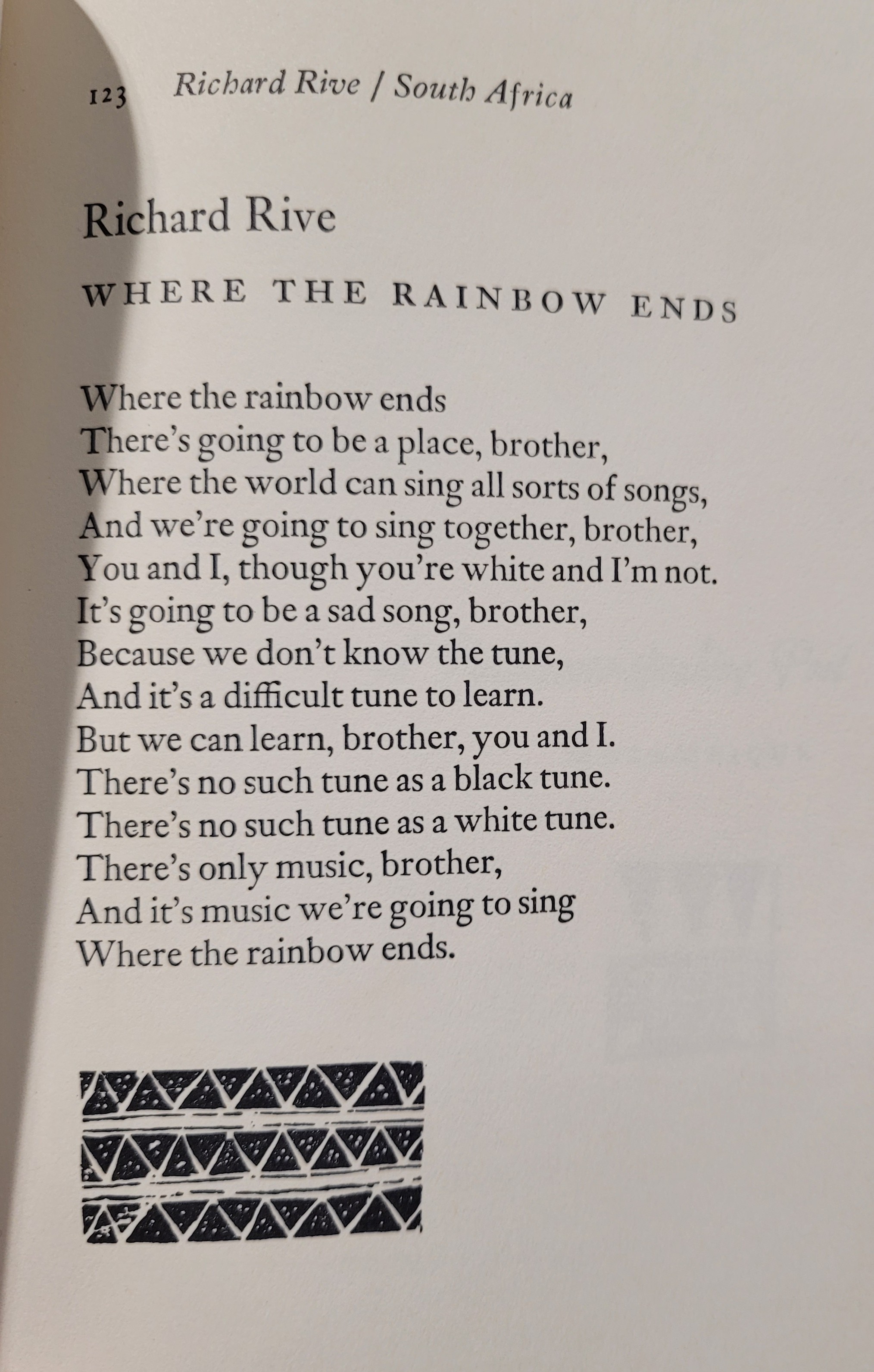April 7th, 2024
Today, I ignored the fact that I need to do laundry incredibly badly (I have no underwear left!) and slept in late, savoring the midday light when I woke up. I had a late breakfast and walked in the rain to the library on campus, where I was determined to get some work done (spoiler alert: not much work was done).
I had a noble to-do list and didn't finish anything on it, but I worked on a math assignment for over an hour until I had to quit. I got covid for the second time last December (right before finals, too) and I think I have brain fog because of it - although it might be a side effect of medication. In any case, it's really hard for me to concentrate on brain-intensive activities for a long time.
Once I'd given up on math, I walked around my campus library, looking through the shelves with books about clinical care and then the shelves with books on language. The library isn't very good--mostly the books were old and not useful--but there was a copy of Poems of Black Africa, which has a foreword by Langston Hughes.
I really enjoyed the book. In particular, the poem Where The Rainbow Ends by Richard Rive from South Africa was stunning.

Here's the full text of the poem, if the picture doesn't load or you use a screen reader:
Where The Rainbow Ends by Richard Rive
Where the rainbow ends
There's going to be a place, brother,
Where the world can sing all sorts of songs,
And we're going to sing together, brother,
You and I, though you're white and I'm not.
It's going to be a sad song, brother,
Because we don't know the tune,
And it's a difficult tune to learn.
But we can learn, brother, you and I.
There's no such tune as a black tune.
There's no such tune as a white tune.
There's only music, brother,
And it's music we're going to sing
Where the rainbow ends.
I love this poem. It's matter-of-fact, and honest, and simple, which is really all I want in poems. I'm not good at writing about writing, so I'll spare you that, but I just wanted to share it.
I'm still going to write about my gender, sorry-not-sorry. I watched a video from Arthur Rockwell called How to Know if You're Transgender: A Different Approach in which he suggested a different method of gender exploration than is normally discussed, so I wanted to write about it here.
If you go online searching for resources when you're questioning your gender, the most common two ways to know are listed as: a), displaying signs as a child; and b), if you're wondering if you're trans, you're probably trans. Rockwell explains why these two methods aren't useful if you're someone with high anxiety and tendency to overthink. Instead, he suggests a nine step process:
- Buy a fun journal for use during the process.
- Reflect on how you make big life deicisions.
- When have you regretted a big choice? Why did you make it?
- When have you been happy with a big choice? Why did you make that decision?
- Find examples of people living exciting, authentic lives of different gender experiences and presentations. This includes making real life friends, watching shows and movies, and reading books. Do this over an extended period of time so that your societal biases slip away passively.
- Journal about which parts or experiences you relate to and which you don't.
- Make reversible changes and reflect on how you feel--not just the short-term excitement, but also how you fell when the novelty wears off.
- Find friends, relatives, or a therapist you feel comfortable talking about your feelings and trying things out with. Talk about your excitment, fears, hopes, and worries. Try out social aspects of transition: how does a different set of pronouns feel in the short run? What about after it's gotten normal?
- Practice envisioning your future, ignoring your gender for now.
- What goals do you have for the next year, or the next 5 or 20?
- How do you want to feel then?
- What kinds of people do you want to meet? What do you want to do with your career? What do you want to do for fun? Where do you want to live?
- Chose what social media you follow carefully. What makes you feel good and supplements your real life? What makes you feel anxious and sucks you out of your real life?
- Reflect on the experiences you've had trying out different gender experiences and questioning.
- When do you feel most confident about want to transition? When do you feel the least confident?
- When do you feel the happiest and most confident as your current gender? When do you feel the least?
- When do you feel the happiest and most confident as your envisioned gender? When do you feel the least?
- Search for moments of quiet and normalcy where you are living something close to what life would be like if you transitioned. Nights at home cooking where your girlfriend calls you her boyfriend? Going out dancing at a gay club? Watching football with a group of friends? D&D nights with nerdy, queer guys? Going out to pick up takeout that you ordered under your new name?
I think I'm going to write about my answers to these questions as I follow the steps. I really like this framework because it creates a meaningful, intention method to gender exploration that is more well-defined than "just knowing" your gender. Like, if I "just knew" then I wouldn't have to question it, would I?
Well, it's nearly 11 and I have class in the morning, so I should head to bed. But there will be more about the 9 steps to come!
Return to list of entries